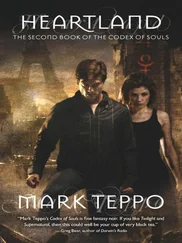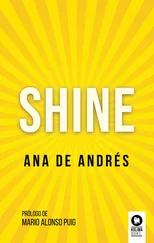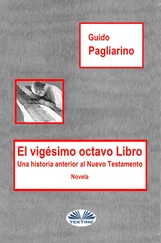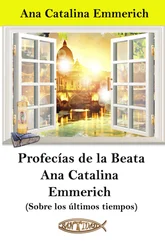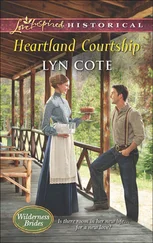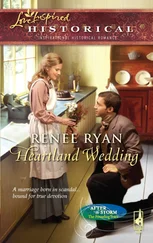Had I set the kitchen clock radio last night? I was still too drunk to tell. I drifted into that zone of clarity between wakefulness and sleep where McCabe dwelled. A scene from two months ago uncoiled with serpentine dread. I was still confined to bed, with my feet raised and thickly bandaged. McCabe was sitting on a chair by the foot of the bed. “I didn’t know that you followed Washington politics,” I said, trying to sound casual. “I don’t,” she answered. When I remained silent, she added, “They don’t matter.” She looked at me with curiosity. My hands got clammy and shaky under the covers, but I pushed on: “Yet you ran out to tell me about the National Security Advisor and the bomb….” It was now McCabe’s turn to be silent. “I thought that you’d want to know,” she finally said. “Why?” I asked. “Because you like to know everything,” she answered evenly. I tried to decipher the meaning of that terse statement but hit the glass wall that was McCabe’s open and candid face. Did I see a slight tremor of fondness at the corner of her mouth?
She had a strong mouth, generous but not fleshy, perfectly in proportion with her nose and chin, both equally well defined. The new McCabe could not be called pretty. Her ears were a little too large and separated from the head, her neck perhaps too long. I decided this was only noticeable because the rest of her features were so harmonious. Hers was what used to be called a handsome and noble face. There was something Byzantine about McCabe. Not Byzantine as in classical paintings, but as you can still see in the faces of Anatolian refugee women who have just arrived on the streets of Astoria, before Aracnidan cuteness infects them. McCabe’s body and head were slightly mismatched. Her body was too bony and elongated, more suitable for the narrower elfin faces so common in Prague. What allowed her face and head to sit gracefully on her body, in spite of the mismatch, were her shoulders, slightly wider than what her body required, but perfectly adapted to receive the neck and head. Breaking down McCabe into her architectural components was not something I did in our everyday life. It was only in that zone of light, cushioned by a hangover and Bincrósbi’s fecally sweet voice, that I began to pull her apart.
In real life, as distinct from uncoiled memory, McCabe was as alive and human as Mrs. Crandall, even if I perceived no carnality in her. Was flesh necessary for life? Thunder, lightning, wind, music, and, come to think of it, birds did not bring flesh to mind, and yet they were alive. McCabe was the most splendid specimen of the breed. I knew that life and passion existed outside the flesh. I had seen it in McCabe and experienced it with her, but I did not understand it. My brain was too small to grasp this in any but the most general way. Whenever I tried to understand McCabe and her effect on me, I would feel the vertigo of the starry sky. Just as on the Night of the Dead at Shangri-La’s cemetery, when praying to heaven with my grandmother for her indito godchildren’s forebears. Abandon yourself. Do not think. Who said that? I could not identify the voice. The zone of clarity has lousy acoustics. Bincrósbi, for all we knew, could have been a sadistic pedophile, the kind who shoots videos of six-year-old girls sticking pencils into their tight little assholes. Saint Bincrósbi, Protector of the Spics. He had the narrow, sharp features that McCabe’s body was made for, but mercifully did not get. Things would not be what they are if McCabe had Bincrósbi’s mug. This curious thought finally woke me up.
The house was mute. A robin sat on the rosebush. Don’t they migrate? McCabe would have known. I missed her. Unbearably. Odiously. Just one more day of suffering. I may have held her soul in my mouth, whatever that meant, but it did not stop my longing. It made it worse. My appetite for her was as insatiable as Mrs. Crandall’s had been for me until the day she imposed her will on herself and dismissed me. Exemplary Mrs. Crandall. I was tempted to go to her, drown in her overflowing and uncomplicated breasts, but I pulled back on my leash as she had on hers. Mrs. Crandall and I understood each other perfectly well. We were dogs in heat—prairie dogs, not the horrific kennel-dwellers. Two cowardly, but free, prairie dogs.
With the logs split by McCabe, I had built a pyramidal pyre inside the icehouse. After stuffing the pyramid with fire starters, and placing a large gas can in a corner, I had removed two stones from the upper part of the icehouse wall so that the smoke could escape. Oxygen to keep the fire alive would come in through the heavy iron door, which I would keep open as much as necessary. The stone could resist a temperature of about twelve hundred degrees Fahrenheit without cracking. I would lay McCabe’s naked body on top of the pyramid face up, arms open, eyes closed.
I had seen her naked body twice before. The first time was from my window on a balmy October morning, after the snow that had frozen my feet had melted. She had been splitting logs for about an hour by the gardening shed when she took off her clothes and work boots and doused herself with the hose. The water must have been cold, but she did not seem to mind. She coiled the hose on a low sycamore branch and stood underneath, face upturned, drinking the water and letting it run down her chest and belly. I could not see her face. From my window, she looked about six inches high by the distant shed. I hesitated before I picked up the Judge’s binoculars. I was afraid to disturb the flow of events. That was one of my phobias. Curiosity was stronger. Like a doomed time traveler in a Saturday morning show, I trained the binoculars on her face. Her lips were parted to receive the water, the tip of her tongue visible inside her mouth, waiting, her eyes closed in the heavy-lidded way of someone sleeping. Her face was transfigured. She was so human that she was inhuman. I dropped the binoculars as if I had stepped barefoot on burning coals. The second time was at night. My own moaning woke me from the fever long enough to catch a glimpse of her standing naked at the foot of my bed, then walking to the window to close the shades. Oh, merciful one, who rushes in the dead of night to the sickbed of the worm without thinking of covering yourself! I had seen her naked twice, yet I still had not seen her flesh. The fire would.
McCabe’s pubic hair was a deep red. I had not trained the binoculars on her body. That would have been indecent. I had seen the red splotch with my own eyes on the distant six-inch figure, right before water began to pour out of the hose, darkening and flattening the hair on her head and body. The hair on her head was almost black, like her eyelashes and the hair of her armpits. Her tee shirt sleeve receded to reveal the dark armpit hair when she lifted her right arm above her head to get me a book from the Judge’s uppermost shelf. I was next to her and happened to look up from my wheelchair at that very instant, catching the dark underarm shadow. Behind the book I had asked for, whose title I don’t remember, she found a 1904 edition of Audubon’s Birds of America . During our last meal together, she told me that finding that book, on that precise day, had been a good omen. Of what, she wouldn’t say. Perhaps as a consolation, she volunteered that she had grown up watching birds in Maine, which in the summer was the bird capital of the world. More than two thousand different species had been sighted. The cliffs near Portland were a favorite nesting spot for albatross. McCabe almost convinced me she was from Maine. What does it matter now?
McCabe took the Audubon book to her room the night she found it. She must have taken it with her when she left, along with what I always assumed was her birding notebook. Now everything is subject to reinterpretation. The Audubon book, as all other items in the Judge’s house, was in an inventory attached to the lease that McCabe had signed. Early on, before her transformation, old McCabe had given me the lease to keep along with ten thousand dollars in twenties and tens for household expenses. I had insisted on a cash economy. “Ain’t no more where dat come from, so make it last,” she jabbered in her phony Afro-Brooklynese. The time when I was devoted to covering my tracks, with alibis, with taking my revenge on that bombastic but ultimately harmless creature also named McCabe, seems so remote now that I wonder if my brain is finally going dark under this mattress, or if the remoteness is of a moral nature, an acknowledgement of my insignificance. I am not today who I was at the end, and I was not then who I was at the beginning, or even in the middle. This is not a riddle, dear listener, but a statement of fact.
Читать дальше



